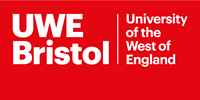An opportunity to apply for a funded full-time PhD in the College of Health, Science and Society at the University of the West of England, Bristol. The studentship will be funded by the University of the West of England, Bristol and external organisations
Ref 2223-APR-CHSS11
The expected start date of this studentship is 1 April 2023 or 1 October 2023
The closing date for applications is 24 February 2023.
About the Studentship
Applications are invited for a prestigious three-year fully-funded PhD studentship, commencing in April or October 2023.
With the ongoing natural habitat loss, degradation and progressive urbanisation, there is increased emphasis on the importance that domestic gardens have for wild birds. Supplementary feeding of wild birds is practiced by millions of people across Europe, North America, and Australasia. Wild bird feeding is considered one of the most common forms of wildlife - human interaction. Feeding birds has been shown to promote human health and well-being and may enhance public interest in wildlife welfare and conservation. However, there are risks associated with feeding birds. Supplementary feeding may increase the likelihood for pathogen exposure and transmission, as a result of i) birds gathering together in large numbers and high densities and repeatedly over long periods of time, ii) opportunities for species mixing, which is unlikely to occur in natural habitats and iii) poor hygiene conditions resulting in pathogen contamination of feeding/water stations.
There are several well recognised microorganisms such as Escherichia coli, Salmonella, Trichomonas gallinae that can affect wild birds, including those visiting gardens, which can cause outbreaks of disease and lead to bird suffering and death. The zoonotic potential of some wild bird pathogens (e.g. Salmonella) is also very well known, and the very close human–wildlife proximity at feeding/water stations dramatically increases the risks to public health. It has also been established that wild birds can act as vectors of antibiotic resistant microorganisms to humans, wildlife as well as livestock.
There is an urgent need now to develop novel, sustainable antimicrobial strategies to improve bird health and minimise the spread of disease in wild birds and humans, while maintaining the benefits of providing supplementary food for wild birds.
The aim of the project is to develop novel, sustainable and antibiotic-free antimicrobial strategies (e.g. coatings, 3D printed antimicrobial surfaces) that can be applied to various surfaces and structures to protect against pathogens that affect wild birds, including pathogens with zoonotic potential. To achieve this aim, we will leverage advanced experimental methodologies such as fluorescent and confocal microscopy, scanning electron microscopy, atomic force microscopy, tissue culture, microfluidics and 3D printing.
The PhD student will join a multidisciplinary research group and will receive excellent training and support from their supervisory team, and develop the practical skills and enterprising mind-set that employers seek. The student will also benefit from a rich collaboration and knowledge exchange with an industrial partner and a charity organisation involved in the project, which will help enhance and accelerate the benefits and impact of this work.
For an informal discussion about the studentship, please email Dr Alexandros Stratakos – [Email Address Removed]
Funding details
The studentship is available from 1 April 2023 or 1 October 2023 for a period of three years, subject to satisfactory progress and includes a tax exempt stipend, which is currently £17,668 per annum.
In addition, full-time tuition fees will be covered for up to three years for UK residents, EU citizens and Overseas applicants who meet the eligibility criteria
Eligibility criteria
Applications are invited from ambitious, self-motivated and enthusiastic candidates. Applicants must have a First-Class or Upper Second-Class BSc in an appropriately related subject area (for example, Microbiology, Molecular Microbiology, Biochemistry) with a solid grounding in laboratory-based research. Although not essential, a Master’s degree or an MRes in a related discipline, and/or postgraduate laboratory experience is desirable. Experience in 3D printing (e.g. FDM) is also desirable but not essential. A comprehensive programme of support is also provided at UWE Bristol for postgraduate researchers to prepare candidates for becoming future research leaders.
The applicant will be based at Frenchay Campus, UWE Bristol. This opportunity is available to UK residents, EU citizens and Overseas applicants.
Applicants whose first language is not English require a recognised English language qualification. The minimum entry requirement is GCSE English at grade C or above or IELTS.
How to apply
Please submit your application online. When prompted use the reference number 2223-APR-CHSS11
Supporting documentation: you will need to upload your cover letter, all your degree certificates and transcripts and a recognised English language qualification is required.
References: you will need to provide details of two referees as part of your application.
Closing date
The closing date for applications is 24 February 2023.
Further Information
Please provide a cover letter as part of your application

 Continue with Facebook
Continue with Facebook



